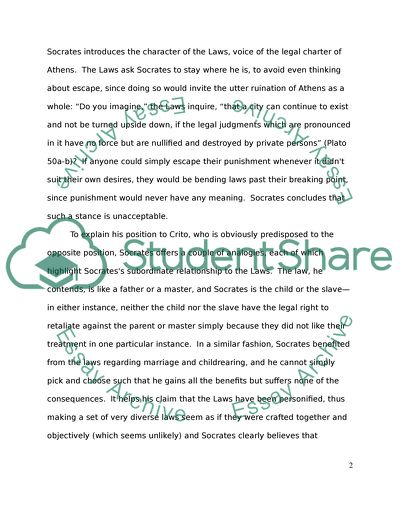Cite this document
(“Crito Essay Example | Topics and Well Written Essays - 1000 words”, n.d.)
Retrieved from https://studentshare.org/philosophy/1422643-crito-essay
Retrieved from https://studentshare.org/philosophy/1422643-crito-essay
(Crito Essay Example | Topics and Well Written Essays - 1000 Words)
https://studentshare.org/philosophy/1422643-crito-essay.
https://studentshare.org/philosophy/1422643-crito-essay.
“Crito Essay Example | Topics and Well Written Essays - 1000 Words”, n.d. https://studentshare.org/philosophy/1422643-crito-essay.


